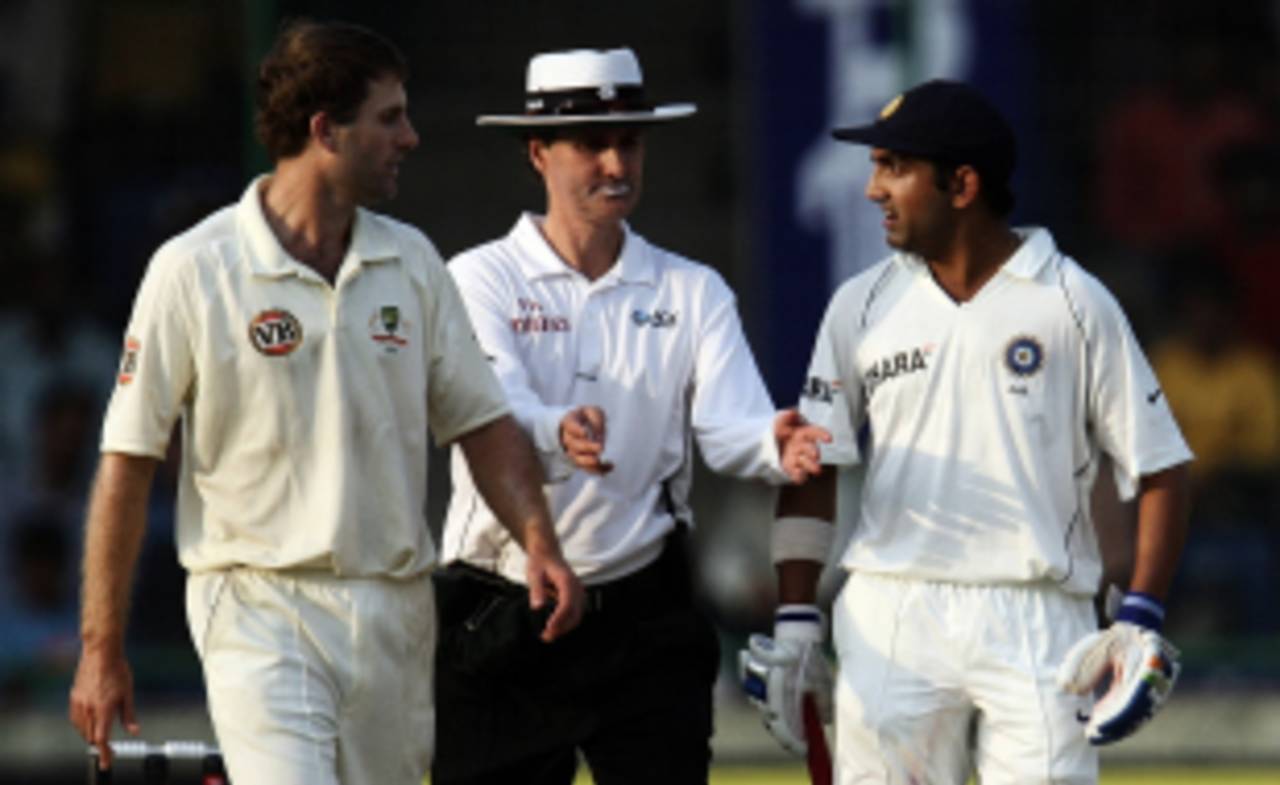Sound and fury signifying much
International opponents have known for years how feisty Simon Katich can be as an adversary, and now Cricket Australia has been similarly enlightened
Daniel Brettig
Jun 10, 2011, 6:12 AM

Andrew Hilditch and his selection panel pulled an incendiary rein by choosing to cut Katich out of their plans • Prakash Singh/AFP/Getty Images
It was entirely fitting that Simon Katich delivered his stream of righteous fury about Australian cricket from the Cricket New South Wales lecture theatre at the SCG.
Katich dished out some harsh truths, the likes of which no one in a position of authority at Cricket Australia has yet been prepared to address in public. They will have to now, after Andrew Hilditch and his selection panel pulled what has quickly become an incendiary rein, cutting Katich out of their plans despite all he had done with the bat over the preceding three years.
Often an angered player has rounded on his critics in order to clear his head, and then promptly resumed his normal stance. The early sound and fury has often signified nothing. But Katich's outburst was highly meaningful at a time when Australian cricket is examining its very marrow in the search for better results and better balance.
International opponents have known for years how feisty Katich can be as an adversary, and Michael Clarke discovered it to his detriment in the SCG dressing room in 2009. Now CA have been similarly enlightened.
Katich's temper, and willingness to scrap, are widely known. But he is also among the shrewdest figures in the Australian game. In the Australian Test team he was, by a distance, the most experienced state captain, and among the best performed. Neither Ricky Ponting nor Clarke had anything like Katich's captaincy pedigree before being handed the national job. The Katich who faced the media in the lecture theatre was angry, yes, but exceptionally controlled.
By choosing his words carefully, Katich had the maximum impact on those he felt had wronged him. The selectors, who have toyed with his career more than once without having anything like the same investment in their decisions as Katich did in his cricket. The Cricket Australia management hierarchy that appoints the selectors and remained deaf to ever louder calls for a fully professional process. And the marketeers who destabilised the Test team ahead of the Ashes by forcing the announcement of an unwieldy 17-man squad to a deadline that was for publicity rather than purposes of cricket.
One of the few to evade Katich's wrath was Clarke. Katich dismissed any contention that their two-year-old dressing room dust-up had played a part in his removal: "I'm not going to shy away from the fact we had the incident a couple of years ago, but I think we've both been really professional in handling that the last two years, and it hasn't really been a problem since then, so I don't think that's an issue." It was the most conciliatory thing Katich said for 20 minutes.
Even amid such grave matters, there was still room for humour. Katich started off by apologising for the stubble that better reflects his 35-year-old self than a clean chin might have done. He also answered a query about a Twenty20 future by saying "not really, when you consider the way I play". A cue for knowing grins all round.
But the most telling words arrived when he resorted to cliché. So often such terms have been used by cricketers or administrators to gloss over the truth of a matter, but in this case the circumstances made them sound utterly appropriate, even profound.
When asked about the need to pay selectors a wage commensurate with what was expected of them, Katich replied: "If you pay peanuts, you get monkeys."
As he pondered the ramifications of his words, Katich hoped for a positive outcome stemming from the concurrent investigations of the Don Argus review into the Australian team's performance. "Hopefully the review, something good will come out of that review," he said. "Because this might just be the straw that breaks the camel's back."
Some straw. Some camel.
Daniel Brettig is an assistant editor at ESPNcricinfo